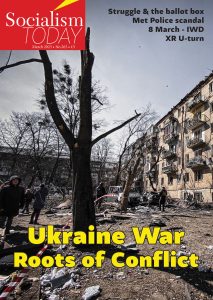
As trade union activists in Britain were preparing for February’s escalation of the movement against the cost-of-living crisis here, news came from across the Atlantic that, in the words of The Independent newspaper headline, ‘Kshama Sawant America’s highest profile socialist won’t seek re-election’ later this year.
The autumn election would have seen Kshama, described by The Independent as “America’s highest-ranking elected socialist”, compete for a fourth term on Seattle city council, the eighteenth biggest city by population in the USA.
The statement from Kshama herself explaining the decision not to stand referenced events in Britain, contrasting the role of “much of the union leadership” in the US – “closely tied to the Democratic Party establishment, afraid to call out the Democrats, afraid to run independent candidates” – with what she perceives to be a different situation in Britain.
“It should be progressive labor unions using their resources” to launch a movement against the might of big business and the political establishment, she argued, “as unions have in the UK with the Enough is Enough campaign. But that has not happened” in the US, she said, because of the unions’ ties with the Democrats. (The Seattle Stranger, 20 January 2023)
And so Kshama’s conclusion is to step back when her term ends in December from the city councilmember position she has held since her victory in 2013, to help, she says, launch “a national movement, Workers Strike Back, instead of myself running for re-election again in Seattle’s District 3”.
Read more